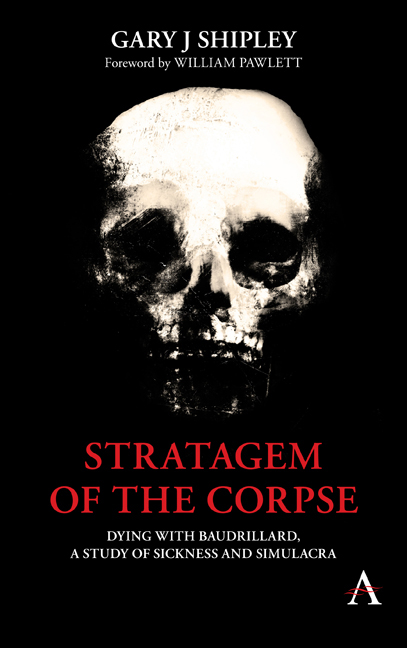Book contents
- Frontmatter
- Dedication
- Contents
- Acknowledgements
- Foreword by Pawletts William
- Introduction
- Chapter 1 On Decay and Other Synthetics
- Chapter 2 Stratagem of the Corpse
- Chapter 3 A Bleak Non-History of History
- Chapter 4 The Hyperactivity of Objects
- Chapter 5 The Unnamable Catastrophe
- Chapter 6 A Cure for Vertigo
- Chapter 7 Chance and the Temporality of Death
- Chapter 8 The Possibility of Nihilism
- Chapter 9 Smell-O-Vision: The Murder Show
- Chapter 10 The Evil Death
- Chapter 11 False Confessions and the Madness of Death: Making Death Speak
- Chapter 12 Black Light: Nigredo and Catastrophe
- Appendix 1 Whiteout: Spatiotemporal Interstices, Necropresence and the Immortality of Now
- Appendix 2 Pure Dreaming: Radicalized and Vermiculated Thought, or Death as an Earworm
- Appendix 3 The Non-Existence of the Scream
- Index
Appendix 3 - The Non-Existence of the Scream
Published online by Cambridge University Press: 20 February 2020
- Frontmatter
- Dedication
- Contents
- Acknowledgements
- Foreword by Pawletts William
- Introduction
- Chapter 1 On Decay and Other Synthetics
- Chapter 2 Stratagem of the Corpse
- Chapter 3 A Bleak Non-History of History
- Chapter 4 The Hyperactivity of Objects
- Chapter 5 The Unnamable Catastrophe
- Chapter 6 A Cure for Vertigo
- Chapter 7 Chance and the Temporality of Death
- Chapter 8 The Possibility of Nihilism
- Chapter 9 Smell-O-Vision: The Murder Show
- Chapter 10 The Evil Death
- Chapter 11 False Confessions and the Madness of Death: Making Death Speak
- Chapter 12 Black Light: Nigredo and Catastrophe
- Appendix 1 Whiteout: Spatiotemporal Interstices, Necropresence and the Immortality of Now
- Appendix 2 Pure Dreaming: Radicalized and Vermiculated Thought, or Death as an Earworm
- Appendix 3 The Non-Existence of the Scream
- Index
Summary
The one thing left to say, we cannot say. It would have to be screamed and the scream has ceased to exist. God is too far away for us to perform this negative expression of nothing. For while the mystics told us what they could not tell us, communicating the ineffable, describing ‘delights impossible of description’, in sensory metaphors, with God inside them like a sexless lothario, like joy in dung, we long only to scream and cannot, to have some simulacrum of the scream that hasn't already been contextualized into a whimper. But such an honest ejaculation is ridiculous now. The mystic's intimate union with God has become the raped or necrophilic union of quietly imploding cultures and sub-cultures, and these concurrences for all their differences are the same. And yet the non-existence of the scream is still with us – consecrated with piss and shit and blood, with mutilated bodies and hate-filled fucking, with sacrifice and genocide, with torture and millions of pointless expirations – and this inversion of the scream there before the scream had even gone, its inarticulation of consciousness experienced as both isolation and affiliation, its longings unchanged. Accordingly, we have the added futility of the non-scream, a futility in opposition to the futility of fucking the dead, and so more in line with those same dead fucking us: the former's meaningless fucking of what does not comprehend, as if you could rape the germ/ seed of your message into the non-cognizant, becomes a defeated return to action via inaction, an inaction that the former had embodied, not as a reactive spreading of hazardous material, but as pure unencumbered spectacle, which now, freed of its asinine delusions, is mute and cancerous and communicated through signs – signs for the unfeasible made impossible.
We have fucked the senseless sense out of the scream, located an enemy there, an aggressor, a dissenting non-voice to be repeatedly entered and exited, comprehensively owned in one hawkish intrusion after another, a concatenation of poisoned utilitarian unions that leave both parties empty and intact. This is the mystic union turned sour, pumping the inexpressibility of godlessness into the echoes of its noise like a dissolving agent.
- Type
- Chapter
- Information
- Stratagem of the CorpseDying with Baudrillard, a Study of Sickness and Simulacra, pp. 199 - 202Publisher: Anthem PressPrint publication year: 2020



